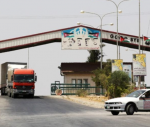You are here
Europe’s flawed approach to critical minerals
Dec 30,2023 - Last updated at Dec 30,2023
LONDON — A factory might appear economically valuable, but if it is polluting so much that it destroys the surrounding ecosystem, it is not adding value at all. This principle should be central to the European Union’s policy decisions, as it races to secure access to the 34 raw materials considered “critical” to the EU’s renewable-energy, digital, space and defense, and health sectors.
The process of extracting critical minerals from raw ore — before smelting, refining, or otherwise changing them into usable forms, is highly concentrated within global supply chains, and not in Europe. In 2021, China processed 50 per cent of the world’s lithium, 56 per cent of its nickel, 80 per cent of its gallium, 60 per cent of its germanium, and 69 per cent of its cobalt. As a result, these supply chains are prone to bottlenecks and highly vulnerable to economic and geopolitical shocks.
If a mineral-processing power like China decides to use critical-mineral supplies as leverage or punishment, the EU will be at a significant disadvantage. In July, China announced it would restrict exports of gallium and germanium, both of which are needed to manufacture semiconductors. That decision had ramifications for national security in Europe, where demand for gallium is expected to grow 17-fold by 2050.
This vulnerability partly explains why the European Commission is committed to getting the Critical Raw Materials Act (CRMA) passed by early 2024. Along with strengthening the EU’s own mineral-processing capacity and forging “strategic partnerships” with mineral-rich countries, the CRMA is a key component of the EU’s strategy for securing the supplies it needs.
To boost the appeal of strategic partnerships, while distancing itself from its extractivist past, the EU has incorporated into the CRMA commitments to “value-addition” in the countries where critical raw minerals will be mined and processed. While we can guess some of what is meant by that, for example, supporting the development of mineral-processing capacity in countries where it is lacking, neither the CRMA nor any other documentation published so far clearly defines how value-added would be measured.
As a new study by the Heinrich Böll Foundation points out, this leaves citizens of mineral-producing countries, as well as Europeans, unable to make informed decisions about these strategic partnerships, which are, in any case, legally non-binding. As one expert interviewed in the study observes, “unless it is clearly defined, value-added becomes a political slogan that can be wielded. For it to mean anything in practice, it is a concept that needs to be unpacked”.
The European Commission has offered some clues as to what such “unpacking” would reveal. During last month’s EU Raw Materials Week in Brussels, public statements by Commission representatives suggested that value-addition would be economic in nature, with a focus on creating jobs and generating revenues for local communities. But while jobs and revenues are obviously desirable, this approach fails to account for the vast environmental and social costs of mineral processing.
In Namibia, a major copper-smelting operation in Tsumeb has, in the past, contaminated the local air, soil, and water, to the point that residents showed elevated levels of lead and arsenic. In Chile, lithium extraction has caused severe water shortages, as it consumes 65 per cent of the Atacama Desert region’s supply and contaminates freshwater sources. Local communities have barely been consulted, if at all, about these activities, a violation of the principles enshrined in International Labour Organisation Convention 169 and the United Nations Declaration on the Rights of Indigenous Peoples.
If you poison the local people in order to create jobs for them, can those jobs really be considered “value-added”? What about the mineral revenues that were made possible by the destruction of local ecosystems? Does the local economy truly benefit from activities that drain it of vital ecological and social resources?
It should be obvious that short-term economic gains generated by mineral extraction and processing mean little if they have devastating environmental and health effects (which of course carry longer-term economic costs). That is why the European Commission must incorporate environmental and social considerations into assessments of value-addition linked to the CRMA and similar initiatives.
But that is just the beginning. Even in strictly economic terms, the concept of value-addition demands a more nuanced perspective. A recent report calculated that more than 95 per cent of GDP generated by increased nickel-processing in one of Indonesia’s two key nickel-producing regions, Morowali, did not remain there. So, local communities are not only bearing the massive environmental costs of nickel extraction; they are gaining almost nothing from the revenues. None of this should be considered “value-added” by the EU.
And then there is best practice. Mineral processing, as a sector, is relatively under-scrutinised compared to, say, mining. Experts consider “green” refining, if such a thing can exist, an emerging field, at best. And, so far, advances in mineral processing have been focused mostly on mitigating financial and geopolitical risks for firms, rather than improving social and environmental outcomes.
To be sure, the electric vehicle-maker Tesla claims to have devised an “innovative” lithium-processing technique that is “designed to consume less hazardous reagents” than the conventional process and create “usable” byproducts. “You could live right in the middle of the refinery and not suffer any ill effects,” Tesla CEO Elon Musk boasts. But the firm has not provided any details publicly. The Heinrich Böll Foundation reached out to Tesla requesting more information, but received no response.
Left unreformed, mineral processing may add some economic value for some countries in some cases, but at great social and environmental cost. Unless the EU looks beyond narrowly economic metrics, its investments in this area will merely perpetuate the wrongs of the current fossil-fuel-based system, damaging human health, destroying ecosystems, and exacerbating the “decarbonisation divide.” No amount of rhetoric about “adding value” will change that.
Sophia Pickles, a former member of the United Nations Group of Experts on the Democratic Republic of the Congo, is a former campaign leader and supply chain investigator at Global Witness. Copyright: Project Syndicate, 2023. www.project-syndicate.org













Add new comment